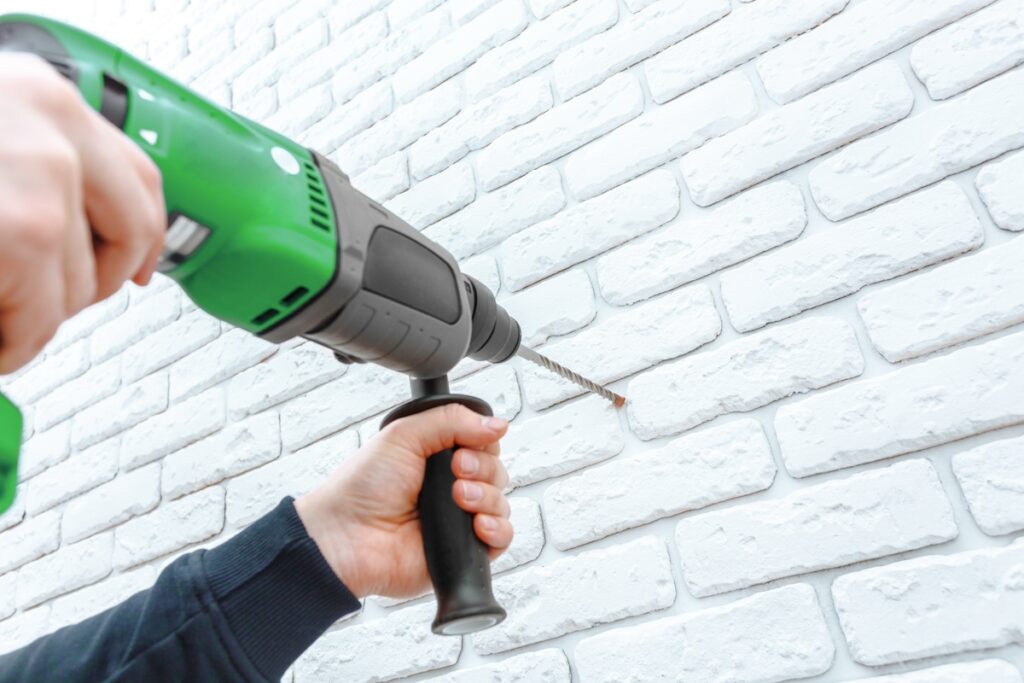Masonry drill bits are essential tools for professionals and DIY enthusiasts working with hard materials like brick, concrete, stone, and mortar. These specialized bits are designed to withstand the demands of drilling into tough surfaces without breaking or wearing out quickly. This guide explores the different types of masonry drill bits, their uses, and how to choose the right one for your project.
Understanding Masonry Drill Bits
Masonry drill bits are specifically engineered to cut through hard surfaces efficiently. They feature a tough construction with carbide or tungsten tips and spiral flutes to help remove debris during drilling.

These bits are commonly used with hammer drills, which provide the necessary percussive action to penetrate masonry materials effectively.
Types of Masonry Drill Bits
1. Carbide-Tipped Drill Bits
Carbide-tipped drill bits are among the most durable and effective for drilling into masonry. They feature a steel shank with a carbide cutting tip, making them ideal for use with hammer drills. These bits last longer and maintain sharpness even with frequent use on concrete and stone.
2. SDS (Slotted Drive System) Drill Bits
SDS drill bits are designed for rotary hammer drills, offering enhanced efficiency and durability. Their unique slot system allows them to slide in and out of the drill chuck easily, reducing wear and increasing drilling power. SDS bits come in three main types:
- SDS-Plus: Suitable for light to medium-duty drilling.
- SDS-Max: Designed for heavy-duty applications.
- Spline Shank: A less common option but still used in specialized applications.
3. Multi-Purpose Drill Bits
Multi-purpose drill bits can drill through various materials, including masonry, wood, and metal. These bits are convenient for users who need a versatile option for different projects, making them ideal for general contractors and DIYers.
4. Diamond-Tipped Drill Bits
Diamond-tipped drill bits are ideal for drilling into extremely hard surfaces such as granite and reinforced concrete. These bits are typically used in wet drilling applications to prevent overheating and extend their lifespan. They provide precise, clean cuts, making them a preferred choice for professional masons and tile installers.
5. Percussion Drill Bits
Percussion drill bits are used with hammer drills for drilling into softer masonry materials like bricks and aerated concrete. They are less aggressive than SDS bits but still effective for light-duty masonry work and general home improvement projects.
Uses of Masonry Drill Bits
Masonry drill bits are used in a variety of applications, including:
- Installing Anchors and Fasteners: Drilling holes for screws, wall plugs, and expansion anchors in concrete walls.
- Electrical and Plumbing Work: Creating passageways for wiring and pipes through brick and concrete.
- DIY Home Improvement: Hanging shelves, mounting TV brackets, and securing outdoor fixtures.
- Construction Projects: Drilling into concrete foundations, floors, and structural elements.
- Tile and Stone Work: Precision drilling in stone countertops, tiles, and ceramics.
Related Reading – Is Stucco Considered Masonry?
How to Choose the Right Masonry Drill Bit
Selecting the right masonry drill bit depends on several factors:
1. Material Being Drilled
Consider the hardness of the material. For softer masonry, carbide-tipped or percussion bits work well, while SDS or diamond-tipped bits are best for reinforced concrete and stone.
2. Drill Type Compatibility
Ensure the bit matches your drill type:
- Standard Masonry Bits: Suitable for hammer drills.
- SDS & SDS-Plus Bits: Designed for rotary hammer drills.
- Diamond-Tipped Bits: Used in specialized drills for wet or dry cutting.
3. Bit Size and Length
Choose a bit with the appropriate diameter and length for your project. Longer bits are needed for deep holes, while smaller bits are better for precision drilling.
4. Drilling Speed and Efficiency
For heavy-duty drilling, SDS and carbide-tipped bits offer better durability and speed compared to standard masonry bits.
5. Coating and Tip Material
Look for tungsten carbide or diamond-coated tips for added longevity and performance, especially when working with reinforced concrete or granite.
Tips for Using Masonry Drill Bits Effectively
- Use a Hammer Drill: Always use a hammer drill when drilling into masonry for optimal performance.
- Apply Steady Pressure: Let the drill do the work rather than forcing it.
- Keep the Bit Cool: Occasionally remove the bit to clear debris and prevent overheating.
- Use the Right Speed Setting: Adjust the drill speed based on the bit type and material to avoid damage.
- Check for Reinforcements: When drilling into concrete, be cautious of embedded metal reinforcements and switch to a rebar-cutting bit if necessary.
Safety Precautions When Drilling Masonry
- Wear Safety Goggles: Protect your eyes from flying debris.
- Use Dust Extraction: Minimize dust inhalation by using a vacuum attachment.
- Secure the Work Area: Ensure the surface is stable and supported to prevent accidents.
- Mark the Drilling Spot: Use masking tape or a marker to guide your drill bit for precision.
Conclusion
Masonry drill bits are essential tools for drilling into tough surfaces like concrete, brick, and stone. Understanding the different types and their applications ensures you choose the right one for your project.
Whether you’re installing anchors, running electrical wiring, or working on a construction site, selecting the proper masonry drill bit will make your job easier and more efficient. Always consider material hardness, drill compatibility, and bit construction when making your choice for the best results.
At Leidal & Hart, we understand the importance of using the right tools for every project. With decades of experience in construction and masonry, our team ensures high-quality workmanship and precision in every job we undertake. Whether you need expert advice on masonry drilling or full-service construction solutions, we’re here to help. Visit Leidal & Hart to learn more about our expertise and how we can support your next project.
